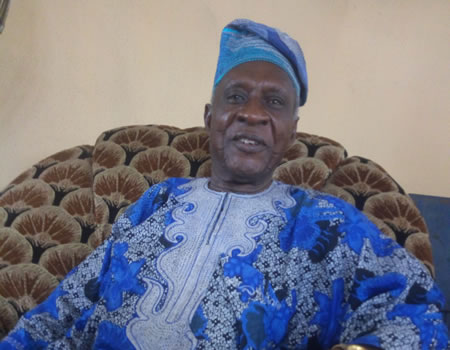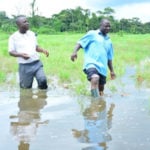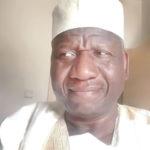Archbishop Ayo Ladigbolu (rtd) is the coordinator of Oranyan Festival, a cultural festival held annually to promote the legacy left behind for the Yoruba nation by the first Alaafin of Oyo known as Oranyan. Ladigbolu speaks to TUNDE BUSARI on the ongoing festival which is uniting Yoruba towns from Nigeria and the diaspora.
When exactly did Oranyan Festival start?
The festival has been on for a long time, but it was confined to the palace of the Alaafin and two major shrines at Agbaakin and Ajiroba. When Baba Alaafin realised the need to take it beyond Oyo because of historical status of Oranyan in Yoruba nation, he came up with this elaborate one. He inspired what one can call the first edition of it held in 2012. That edition was successful, except that it was faced with opposition from certain quarters questioning the right of the Alaafin to hold Oranyan Festival in Oyo. It was a laughable incident, but the Alaafin responded accordingly with overwhelming evidence on why it is his inalienable right to celebrate Oranyan.
What overwhelming evidence did the Alaafin put forward?
You know him as a repository of knowledge. He went down memory lane and analysed with evidence that celebrating Oranyan is celebrating himself because Oranyan was the first Alaafin of Oyo on whose memory the first secondary school, Oranyan High School, Oyo was named. I am very happy to inform you that we have moved beyond that stage; everybody has seen the significance of Oranyan not only to Oyo where he was the first Alaafin but also to the entire Yoruba nation which extends to Kumasi in Ghana. It was Alaafin Oranyan who transformed the landscape of Yoruba to the present day Benin Republic, Togo and Ghana. He was a great empire builder. The history is there and clear. Can you now say that celebrating such personality is out of place? Who and what then should we celebrate? How many know Oranyan’s first name as Odede?
What is another significance of the festival?
As I said earlier, the festival brings back towns and communities which originated from Oyo but were scattered to different parts of Yorubaland. The Ewes who scattered at the coastal areas and whose progenitors left Oyo and Ile-Ife are retracing their root now. They participate in Oranyan Festival. The Ohori people also from Benin Republic have come to unite with their origin at Olusami compound in Ago Isona area of Oyo. Since they discovered their root, they come to attend Oranyan Festival here. Recently too, two families from Togo and Benin Republic visited the palace to trace their origin too. Kabiyesi was of help to them as well to link up with their families here. As we have Fiditi here along Ibadan road, so there is a Fiditi in Benin Republic. We are working on how to establish the link between the two. The Ilaro people too. In the past, the Alaafin used to send the Olu to administer Ilaro every three years because Ilaro emerged from Oyo. Also, the history of Ede is not hidden. This year Ofa is participating because Olalomi is a son of the Alaafin. In short, Oranyan is achieving new unity among Yoruba towns and communities. The organising committee of which I am the coordinator does a lot in research to shed light on forgotten history with a view to setting the record straight for posterity and unity of the Yoruba nation.
What are the activities lined up for this year’s edition?
Three years ago, we started to dedicate a day to what we call Historical Cities with a strong link to Oyo. This year, we are bringing Ofa in Kwara State and Afon in Ogun State to Oranyan Festival. Olalomi was a descendant of Alaafin Oranyan while Afon was also a son of the Alaafin. We are reminding the public of the numerical strength of the Yoruba nation. Part of the activities include quiz, arts and craft exhibition, two-day medical outreach to be conducted by the Nigeria Medical Students Association. There is also going to be a summit on the Imperative of Security for Socio-cultural Development of Yoruba Community. General Kunle Togun, AIG Leye Oyebade, Aare Ona Kakanfo Gani Adams will all be in attendance. A day is also scheduled for gbegiri, which will be 24 hours to the grand finale on Saturday.
The South-West governors hosted another security meeting in Ibadan with the Inspector- General of Police, Mohammed Adamu, in attendance. What is your position on this meeting coming about two months after the first one?
My position is not different from the position of every Yoruba man or woman who is genuinely concerned about the development of Yoruba land and Nigeria as a whole. I see the security meeting by the governors as a child of necessity, especially being a forum which is forging a new relationship among our governors who now see Yoruba interest first before their different political affiliations. What I am saying is that the meeting is in order and appropriate. We saw notable traditional rulers also in attendance. Although the Alaafin could not make it there, he was represented by the Bashorun and Oyomesi. And when you see the Bashorun and Oyomesi attending a function on behalf of the Alaafin, culture and tradition say the Alaafin is present. The meeting is necessary for dialogue and consultations because it is through these means that we can arrive at permanent solutions to the security challenge in the land.
You just mentioned permanent solutions. Do you see that in sight?
It might not be in sight now but with these steps being taken, it is a matter of time. I don’t want to say there is a problem without solution. No. God has blessed us with mental resources to sit round a table and brainstorm. Solutions will certainly come. Why do you think the world has not witnessed the third world war after the Second World War ended in 1945? The Second World War led to the constitution of the United Nations, following serious boardroom engagements by world leaders. The result is what we have today. The first World War ended in 1919, the Second World War commenced in 1939 and ended in 1945. How many years do you have between 1919 and 1939 in one hand; and 1945 to 2019, on the other hand? The answer you get will tell you the significance of intensive engagements in search of solutions to another world war. I am positive that the meetings by the governors would lead to solution, but they need to handle the matter with sincerity of purpose.
The xenophobic attacks have fractured diplomatic relations between South-Africa and Nigeria. What is your take on the Federal Government’s response so far?
The Federal Government’s response so far is appropriate. I think leaders of the National Assembly have travelled down to South Africa. Our Minister of Foreign Affairs too is on top of the matter. This means the government is responding diplomatically. I want to believe this approach will yield fruit and quench the tension which the unfortunate incident has gathered in the past one week. At this age, this type of issue should not occur among African countries. We should be more united now to confront our identified common socio-economic challenges and what make citizens of African continent migrate to Europe and America and Far East on daily basis. It is high time African leaders reasoned together and address those germane issues instead of being on one another’s throat. I want to see the two countries: South Africa and Nigeria coming round to resolve this matter in the interest of the whole continent.
How would you react to the anger being expressed by some Nigerians on properties belonging to South Africans?
Two wrongs cannot make a right. Without mincing words, I am not for this kind of reaction. Let’s say it is a way to quench the anger but in the end, it is counter-productive. We have to be very careful with the way we react to this issue, especially the way we handle things that belong to the South Africans here in Nigeria. We should look at the immediate and long effects of such reprisals. For instance, we have many Nigerians working in those places. How will these people not be affected? Where are alternative jobs for them? What happens to those who supply one item or the other to those companies? It is a sensitive issue just like every issue that connects with the daily sustenance of the populace. What I am saying is that economically, attacking those places is not the best way to respond to the incident.
What do you tell Nigerians resident in South Africa?
Nigerians in South Africa have a choice; they have a choice to remain there or return home. This incident has been happening in the past five years. What should the trend tell them? As I just said, they have an option. If they weigh the options and find returning home more beneficial and safe, they should not wait. But if they feel they can still cope with their experience, they can stay and go about their legitimate businesses.






